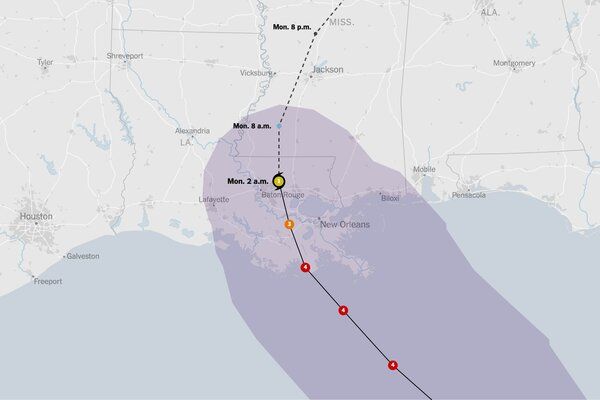Does Homeowner’s Insurance Cover Hurricane Damage?
Homeowners' insurance policies sometimes cover the cost of repairs from natural disasters, including hurricanes, but others require supplemental policies to cover flood damage. Make sure to check what your policy covers before you need it because you might need to purchase a separate policy.
Hurricane Henri and hurricane Ida brought power outages, flooding and halted public transportation throughout the Northeast and Louisiana. Many residents were forced to evacuate and are left without homes. We explain the ins and outs of protecting yourself from extreme costs due to hurricanes and flooding.
Hurricane Ida's Path

Hurricane Henri’s Path
What Homeowners Insurance Covers
Homeowners insurance (the same thing as home insurance) is necessary to protect your home and personal belongings. In fact, almost all mortgage companies require homeowners to have insurance coverage for the property's full value. The same goes for renters, who are usually required by their landlord to have renter’s insurance. Homeowners insurance policies generally cover:
- Destruction and damage to the interior and exterior of your home: your home insurance company will reimburse you for damage due to fire, hurricanes, lightning, vandalism, or other covered disasters, so your house can be repaired or even completely rebuilt. This does not always include sheds or other freestanding structures on your property. Additionally, standard policies do not usually cover destruction from floods, earthquakes, and poor home maintenance. Therefore you might need supplemental insurance.
- Loss or theft of possessions
- Personal liability for harm to others: Liability coverage protects you from lawsuits if someone gets injured on your property. This also includes if your pet were to bite a neighbor and the associated medical bills.
Flood and Hurricane Insurance
Even though some homeowners insurance policies cover damage from flooding or hurricanes, not all do. If you live in a place at high risk of earthquakes or hurricanes, you might want to look into purchasing specialized insurance.
Flood Insurance
Flood insurance costs vary depending on the location and size of the property. The federal National Flood Insurance Program (NFIP) offers flood insurance to homeowners living in NFIP-designated floodplains. After damage has occurred, the insurance company will provide cash to the policy owner to repair the home up to the policy limit. Flood insurance covers damages from flooding caused by:
- Heavy or prolonged rain
- Melting snow
- Coastal storm surges
- Blocked storm drainage systems
- Levee dam failure

Get affordable doctor copay without paying insurance premiums
Join 39,000 people and get Mira, the best alternative to traditional insurance. Enroll and use immediately. Plans start at only $45/mo.
Alexis Bryan MPH, is a recent graduate of Columbia’s Mailman School of Public Health. She is passionate about increasing access to care to improve health outcomes. Outside of work, she loves to travel, read, and pay too much attention to her plants.
